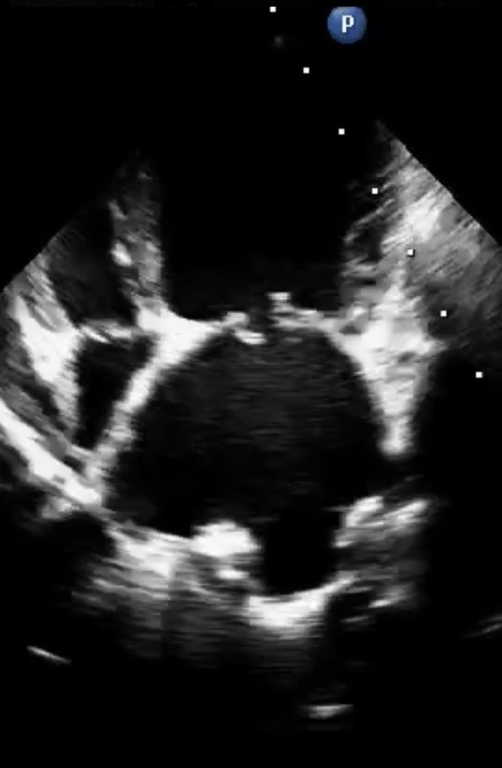
With thanks to Pablo Donati
Systematic Review Does Not Support Use Of Angiotensin-converting Enzyme Inhibitors In Dogs With Preclinical Myxomatous Mitral Disease And Cardiomegaly
 4 years ago
4 years ago  905 views
905 views
Posted
16th May, 2022 16h37
The first comprehensive systematic review and meta-analysis on the efficacy and adverse events of the use of angiotensin-converting enzyme inhibitors (ACEIs) for the management of preclinical myxomatous mitral valve disease (MMVD) in dogs, using the GRADE approach, is published in the latest issue of the Journal of Small Animal Practice (JSAP).The study, “Angiotensin-converting enzyme inhibitors in preclinical myxomatous mitral valve disease in dogs: systematic review and meta-analysis”, demonstrated that administration of ACEIs to dogs with preclinical MMVD and cardiomegaly results in little or no difference in the risk of developing congestive heart failure and may result in little or no difference in cardiovascular-related and all-cause mortality.
MMVD is a common cardiac disease in dogs and can be present in any breed, though is particularly seen in some small breeds such as the Cavalier King Charles Spaniel and Dachshund. This study, from researchers in Argentina, Italy, Austria and Chile, set out to evaluate the efficacy of and adverse events from the administration of ACEIs to treat preclinical MMVD in dogs, via a systematic review of published evidence conducted according to the Cochrane Handbook for Systematic Reviews of Interventions. Certainty of evidence was assessed using the GRADE (https://gradepro.org) approach. The main finding in relation to dogs with preclinical MMVD and cardiomegaly was backed by a high certainty of evidence. The certainty of evidence in relation to the efficacy of ACEI administration in dogs without cardiomegaly was low.
Dr Pablo Donati, corresponding author for the paper, said “In recent times, multiple clinical trials have provided fundamental information to veterinary cardiology. In the era of evidence-based medicine, systematic reviews and meta-analyses have emerged as a fundamental tool for clinical decision-making by gathering, appraising and summarizing the best available evidence. It is the hope of the authors that this systematic review and meta-analysis helps in the decision-making process for the treatment of preclinical myxomatous mitral disease with angiotensin-converting enzyme inhibitors in dogs.”
Nicola Di Girolamo, Editor of JSAP, concluded: “In line with other leading journals, the JSAP is prioritizing the publication of methodologically sound systematic reviews such as this one. However, our readers should be aware that the findings of systematic reviews should always be considered in light of their internal validity, i.e. the quality of the included studies, and their external validity, i.e. the generalizability of the included studied to the individual patient.”
The full article can be found in the May issue of the Journal of Small Animal Practice and can be read online here: https://onlinelibrary.wiley.com/doi/full/10.1111/jsap.13461
The Journal of Small Animal Practice is published monthly and access to articles is free for BSAVA members. For information on how to become a BSAVA member visit https://www.bsava.com/Membership/Member-categories
Donati, P., Tarducci, A., Zanatta, R., Verdier, N., Belerenian, G., Cordero, I., Villalta, C., Franco, J. and Tarragona, L. (2022), Angiotensin-converting enzyme inhibitors in preclinical myxomatous mitral valve disease in dogs: systematic review and meta-analysis. J Small Anim Pract. https://doi.org/10.1111/jsap.13461
ENDS
Notes to Editors
The British Small Animal Veterinary Association (BSAVA) exists to promote excellence in small animal practice through education and science. BSAVA is a not-for-profit professional body, founded in 1957 to serve veterinary surgeons treating companion animals, and now includes veterinary nurses. BSAVA has over 10,000 members, the majority work in practice as veterinary surgeons or veterinary nurses. www.bsava.com
Contact BSAVA: PR & Communications Office, [email protected] or call 01452 726729.
More from
- Animus launches SkinBond Multi for enhanced wound care
- IVC Evidensia reports 82% cut in Farm antibiotic use and 20% carbon emissions reduction
- Vet professionals flock to sign up to transformative locum platform
- The ProSalus Foundation launches urgent appeal for UK vets to support Ukrainian colleagues
- Vetsure Named Business of the Year at 2025 SME National Business Awards

